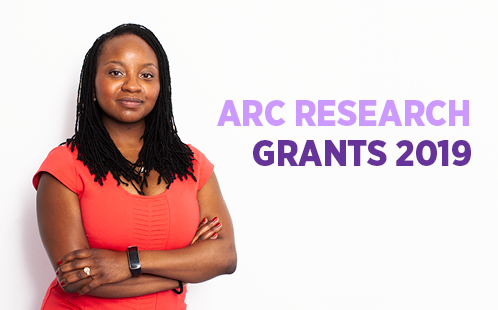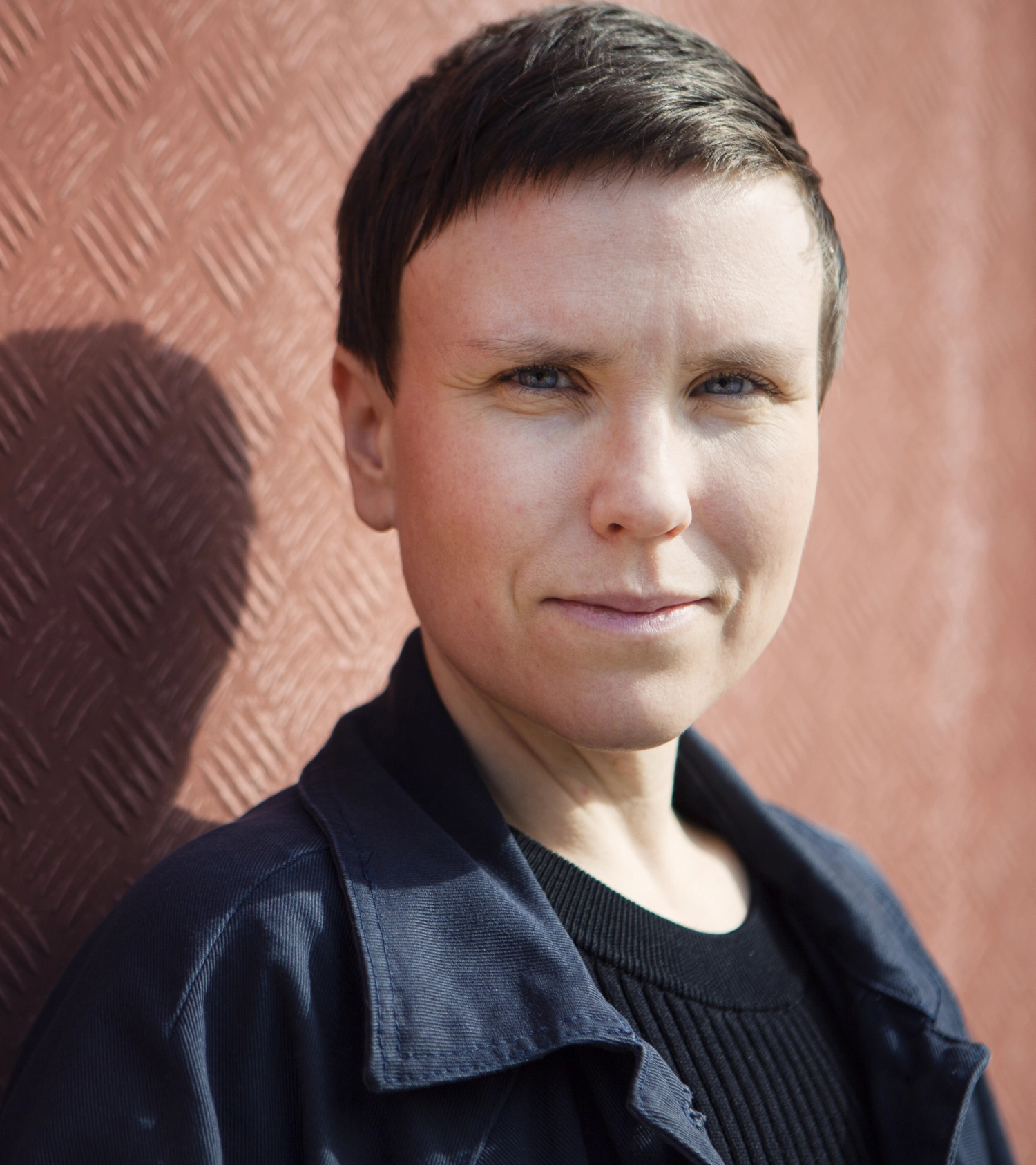
Dr Tinashe Dune
Western Sydney University researchers have been awarded more than $3.5 million by the Australian Research Council (ARC) to investigate critical issues such as sustainable concrete, migrant wellbeing and climatic impacts on native forests, and improving older Australians’ conversation behaviour to help improve health and wellbeing.
The grants comprise nine new Discovery grants totalling $3,563,196. In addition to this, our academics were awarded three additional Discovery Project grants administered by other institutions, with an additional $1,062,851 in funding awarded.
Deputy Vice-Chancellor and Vice-President (Research and Innovation), Professor Deborah Sweeney, commended the researchers on their success.
“Western Sydney University is proud to lead research that is making a positive impact in the communities we serve. In different ways, these research projects will uncover important new insights that can help solve some of our most pressing local, regional, national and international challenges.
“On behalf of the University, I congratulate all our successful researchers on this wonderful outcome.”
Designed to foster new knowledge in issues facing Australia and its regions, Discovery Projects grants are awarded to support the highest-quality basic and applied research to expand Australia’s knowledge base and research capability.
ARC Discovery Projects
The MARCS Institute For Brain, Behaviour and Development
Professor Christopher Davis (MARCS) and Professor Jeesun Kim (MARCS)
Investigating the characteristics of older adults’ conversation behaviour
The project aims to determine the factors that negatively impact older adults’ ability to engage in conversation. This is an important health issue; conversations are essential for communicating needs and maintaining social links; reduced social engagement leads to serious health problems and anticipates cognitive decline. The project will compile profiles of older adults’ auditory-visual conversation behaviour and indices of perceptual, cognitive and social skills. A path model will link these data to ratings of social engagement and satisfaction. By identifying factors leading to low ranked conversations, evidence-based guidelines can be developed for older adults and their carers to enhance communication and improve health and well-being.
Total awarded budget: $411,603
Professor Denis Burnham (MARCS) and Professor Catherine Best (MARCS)
Origins of Phonology and Lexicon: Abstract representations before 6 months
Language is one of the most sophisticated human abilities, yet infants learn it easily. The current view is that the origins of language are abstract representations of consonants and vowels that start to form at 6-10 months. However, recent evidence shows that abstraction begins before 3 months, and that carer-infant conversations are vital to the process. This study involves tracking infants’ behavioural and brain development from 1 to 18 months and analysing carer-infant speech, to determine how early abstraction supports vocabulary growth, how carer speech assists this process, and what early conditions predict language development, thus benefiting earlier identification of language delay, and saving significantly on later remediation.
Total awarded budget: $490,500
Institute for Culture and Society
Professor Ned Rossiter (School of Humanities and Communication Arts/Institute for Culture and Society), Professor Brett Neilson (Institute for Culture and Society), Dr Liam Magee (Institute for Culture and Society) and Associate Professor Sandro Mezzadra (Institute for Culture and Society)
The Geopolitics of Automation
Automation threatens economic disruption. The Project aims to understand how competition between China and the US to develop automated technologies shapes the future of work. Focusing on warehouses linked to Alibaba and Amazon in Australia, Germany and Malaysia, the Project asks how automation changes labour conditions and modifies geopolitical tensions. Digital simulations of automated technologies in warehouses key to the China-US rivalry will seek to augment knowledge about the governance of labour and territory. Intended outcomes include insights into how automation is a geopolitical and economic concern for policy makers. Benefits should offer strategies for organisations negotiating automation’s effects on workforces.
Total awarded budget: $464,271
Dr Shanthi Robertson (Institute for Culture and Society), Distinguished Professor May Ien Ang (Institute for Culture and Society) and Professor Megan Watkins (School of Education/Institute for Culture and Society) and Dr. Bonnie Pang (School of Science and Health/Institute for Culture and Society)
Civic Sinoburbia? New Chinese migrants and everyday citizenship in Sydney
Australia has seen a large influx of China-born migrants in the past few decades. Large numbers of them have taken up residency in various Sydney suburbs, where they now make up almost a third of the population. Focusing on four such suburbs, this project examines how these new Chinese migrants participate in everyday civic life, the barriers that may prevent participation, and how local civic organisations adapt to their growing presence in five domains of social life: education, culture, sport, religion and community service. The project will generate nuanced new knowledge on the local impacts of new Chinese migration, of benefit for urban multicultural governance and enhancing local community cohesion.
Total awarded budget: $392,000
Professor Megan Watkins (School of Education/ Institute for Culture and Society) and Professor Gregory Noble (Institute for Culture and Society)
Schooling, Parenting and Ethnicity: Asian Migration and Australian Education
This project involves a comparative analysis of Asian- and Anglo- Australian families’ approaches to education. In the ‘Asian century’, there is a pressing need to understand the impact of migration and cultural diversity on Australian education and the factors underpinning the relations between parenting and schooling. The project will develop new ways of analysing education cultures beyond simplistic notions of ‘tiger parenting’ that are pitted against more liberal ‘Western’ approaches. It will produce new knowledge enhancing education practitioners’ and community agencies’ understandings of families’ engagement with education, providing an evidence base to inform public debate and social and education policy.
Total awarded budget: $361,452
The Hawkesbury Institute for the Environment
Professor Mark Tjoelker (Hawkesbury Institute for the Environment), Professor Peter Reich (Hawkesbury Institute for the Environment) and Dr Kristine Crous (Hawkesbury Institute for the Environment)
Pushing the envelope: does range size limit eucalypt tolerance to warming?
This project aims to characterise the biogeographic constraints on the physiological flexibility of eucalypts to accommodate climate warming. Do temperature tolerances of diverse taxa vary predictably with native geographic range sizes and climate of origin? In addressing this question, the project expects to generate new knowledge on the comparative physiological responses of diverse eucalypt taxa to warming and heat waves using controlled environment studies and a unique facility at Western Sydney University for heat wave studies of large trees. Expected outcomes include an enhanced capacity to predict carbon exchange and growth responses of native trees to climate warming over large geographic scales.
Total awarded budget: $423,000
School of Social Sciences and Psychology
Associate Professor Phoebe Bailey (School of Social Sciences and Psychology/MARCS), Associate Professor Ahmed Moustafa (School of Social Sciences and Psychology/MARCS) and Associate Professor Gabrielle Weidemann (School of Social Sciences and Psychology/MARCS)
Taking advice: Limits and potentials of social decision-making in older age
Older adults are increasingly victims of financial fraud and abuse. While well-intentioned advice has the potential to improve financial decision-making, ill-intentioned advice can lead to exploitation. This project will use extensive behavioural testing to establish the factors governing how much weight older adults give to advice depending on the type of advisor, the type of advice, and feedback about advice quality. The outcome will be a model of the influence of advice on decision-making in ageing. This will provide an evidence base to create best practice guidelines, interventions, and decision aids that will reduce exploitation and increase the independence and wellbeing of Australia’s rapidly ageing population.
Total awarded budget: $271,370
School of Science and Health
Dr Tinashe Dune (School of Science and Health) and Professor Pranee Liamputtong (School of Science and Health/THRI)
Migrant and Refugee Youths’ Sexual and Reproductive Health and Rights
The population of migrant and refugee youth in Greater Western Sydney is increasing exponentially each year. Little is understood about these young people’s understanding of and ability to exert their sexual and reproductive health and rights. By centering their voices, we can better understand the social ecology of the barriers they encounter and the factors that facilitate informed sexual and reproductive health decision-making. This will result in a youth-determined model for policy and programming aimed at improving migrant and refugee sexual and reproductive health literacy, wellbeing and agency.
Total awarded budget: $299,000
School of Computing, Engineering and Mathematics
Professor Vivian Tam (School of Computing, Engineering and Mathematics)
High-Grade CO2 Concrete for Low Life-Cycle Costing and Emissions
This proposal solves Australia’s concrete-waste-storage problems and lowers the life-cycle costs and greenhouse-gas emissions by creating CO2 Concrete as a world-first material for high-grade applications. Using an automation system with high-tech software, innovative mixing techniques are proposed to maximise bonding at interfacial transition zones, strengthening CO2 Concrete’s quality. The new material CO2 Concrete is created, whose strength and durability are comparable to virgin concrete’s, leading to new CO2-Concrete specifications for trials in the construction industry. This diversifies the construction industry, reduces landfill area, greening up Australia on a global scale.
Total awarded budget: $450,000
ARC Discovery Projects administered by other institutions
Congratulations to the following researchers on their ARC Discovery Projects grant success:
School of Medicine and Translational Health Research Institute (THRI)
(via The University of New South Wales)
Professor Jane Ussher (School of Medicine/THRI)
Women marginalised by mental health, disability or refugee status.
Women impacted by mental illness, disability or refugee status are among society’s most vulnerable and disenfranchised groups. Such women can experience significant social exclusion, marginalisation and stigma, associated with reduced help seeking, deprivation of dignity and human rights, and threats to health, well-being and quality of life. However, many women demonstrate resilience and agency, associated with positive health outcomes. This research will identify how women negotiate stigma and potential marginalisation, to inform health policy, and target interventions for vulnerable women, generating much-needed insight on women’s embodiment of stigma, and strategies used to cope with, negotiate and resist their stigmatised identities.
Total awarded budget: $202,851
School of Science
(via Monash University)
Professor Eileen McLaughlin (School of Science)
Control of developmental switches by importin
This project will study a key molecular switch called IPO5, a protein that is required for cells and organs to form and function normally, and it will reveal how it works. Significance: These experiments will provide the first complete description of how this molecular switch controls the behaviour of a cell across its lifespan. IPO5 is highly conserved, so these studies will be relevant to a wide range of animals. Expected Outcomes: This knowledge will reveal how IPO5 controls formation of sperm by revealing what other proteins it binds to and how this affects cell signaling and responses to the environment. Benefits: This will provide information about potential interventions to control fertility or to repair abnormal cells.
Total awarded budget: $510,000
School of Computing, Engineering and Mathematics
(via The University of Adelaide)
Professor Miroslav Filipovic (School of Computing, Engineering and Mathematics)
The Dawn of Extreme Gamma Ray Astronomy
This project aims to reveal the highest energy cosmic-ray particles in our galaxy, produced in extreme and still unknown astrophysical processes. Their interaction with nuclei in space produces the highest energy gamma ray light. Our project will make use of this extreme gamma ray light with upgraded and next-generation gamma-ray telescope arrays. With accompanying data from Australian radio telescopes, and computer models of the cosmic ray interactions, our project can finally determine from where these cosmic rays originate, yielding insight into our galaxy’s evolution. Complex machine learning methods will be needed in a project that provides a world-leading student training ground, motivated by a century old mystery in astronomy.
Total awarded budget: $350,000







